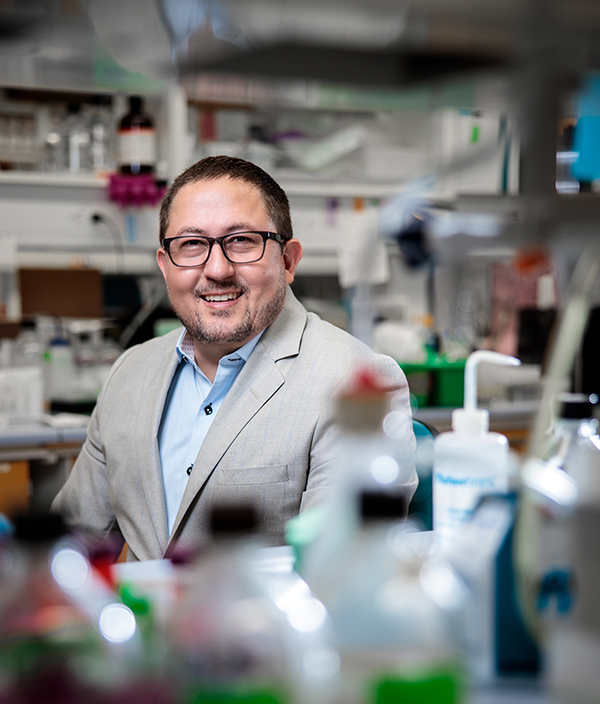Donor Profile
Good Ventures
Eye Scientists Achieve Major Breakthrough in Alzheimer's
 Joseph Arboleda-Velásquez, MD, PhD, understands the power of applying out-of-the box thinking to the toughest medical problems. After years of studying stroke, he translated his expertise and knowledge to eye research when he joined the Schepens Eye Research Institute of Mass Eye and Ear in 2010. Now, he is using his experience in eye disease research to tackle Alzheimer’s.
Joseph Arboleda-Velásquez, MD, PhD, understands the power of applying out-of-the box thinking to the toughest medical problems. After years of studying stroke, he translated his expertise and knowledge to eye research when he joined the Schepens Eye Research Institute of Mass Eye and Ear in 2010. Now, he is using his experience in eye disease research to tackle Alzheimer’s.
“I believe you need to infuse fresh views from outside of the field to accelerate breakthroughs,” said Dr. Arboleda-Velásquez. This collaborative mindset is fostered by Joan Miller, MD, Chair of Harvard Ophthalmology and Chief of Ophthalmology at Mass Eye and Ear. “Dr. Miller encourages us to collaborate across medical disciplines and explore innovative approaches to understanding and treating eye diseases. It’s one of the things that makes Mass Eye and Ear so unique.”
Dr. Arboleda-Velásquez knew of a large extended family in Colombia, his native country, who are genetically predisposed to develop Alzheimer’s disease at around age 40. Seeing similarities between Alzheimer’s and age-related macular degeneration (AMD), he and his colleagues took special interest in a subset of this family who were being studied at Mass General Hospital. One woman in particular caught their attention. She had the early-onset Alzheimer’s gene and unusually high levels of amyloid plaque in her brain, but unlike the others, she did not develop Alzheimer’s disease. Dr. Arboleda-Velásquez and his team set out to find out why.
Through extensive genetic sequencing and analysis, they found that in addition to having the gene mutation that causes Alzheimer’s, this woman had another very rare mutation in a gene called APOE Christchurch. This mutation appeared to be protective, making her resistant to developing Alzheimer’s.
This discovery, one of the biggest in Alzheimer’s in recent years, was published in the journal Nature Medicine in November 2019 and was on the front page of the New York Times the same month.
Recognizing the potential of this discovery and urgency to accelerate this promising research, Good Ventures, a philanthropic foundation with an interest in reducing the future burden of Alzheimer’s disease, made a very generous gift to help Dr. Arboleda-Velásquez and his team develop therapies that mimic the neuroprotective properties of APOE Christchurch and identify other genes that delay the onset of Alzheimer’s.
If you would like to learn more or support this effort, please contact Melissa Paul, Chief Development Officer at Melissa_Paul@meei.harvard.edu.

